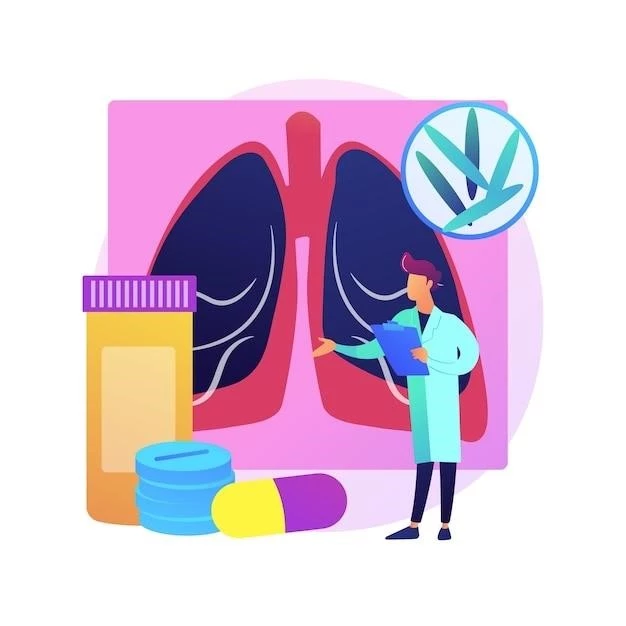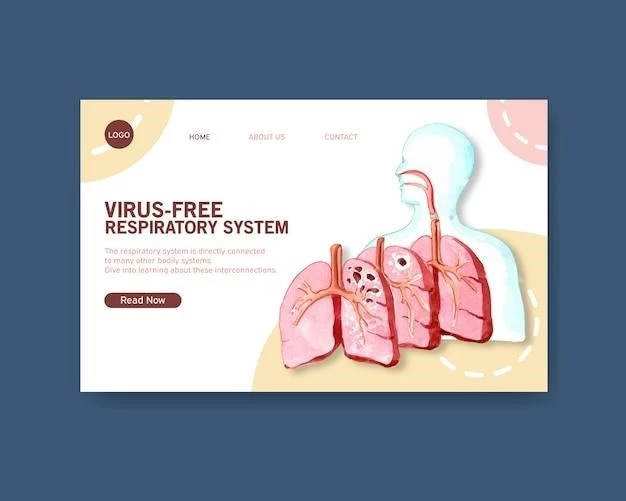Understanding the causes, symptoms, diagnosis, and treatment options for Congenital Bronchobiliary Fistula is crucial․ Patients should be aware of potential complications and the latest research advances in this field․
Causes of Congenital Bronchobiliary Fistula
Congenital Bronchobiliary Fistula is a rare condition with various causes․ One common cause is a developmental anomaly where the biliary and bronchial systems communicate abnormally during fetal development․ Other causes may include infections, trauma, or surgical procedures in the area․ Understanding these causes can help in early detection and appropriate management․
Symptoms of Bronchobiliary Fistula
Recognizing the symptoms of Bronchobiliary Fistula is crucial for timely intervention․ Patients may present with symptoms such as coughing up bile, recurrent pneumonia, abdominal pain, jaundice, and respiratory infections․ It’s essential to consult a healthcare provider if experiencing any of these symptoms, as early detection can lead to better outcomes․
Diagnosis and Imaging for Bronchobiliary Fistula
Diagnosing Bronchobiliary Fistula often involves a combination of imaging studies like CT scans, MRIs, and endoscopic retrograde cholangiopancreatography (ERCP)․ These tests help visualize the abnormal connection between the bronchial and biliary systems․ It’s important to work closely with healthcare professionals to determine the most effective diagnostic approach for accurate identification and subsequent treatment planning․
Treatment Options for Congenital Bronchobiliary Fistula
Treatment for Congenital Bronchobiliary Fistula may involve a multidisciplinary approach․ Options include medical management with antibiotics for infections, bronchial or biliary stenting to improve drainage, and surgery to repair or remove the abnormal connection․ Your healthcare team will tailor the treatment plan based on the severity of the condition and individual patient needs․ It’s essential to follow the recommended treatment regimen and attend follow-up appointments for optimal recovery․
Complications of Bronchobiliary Fistula
Complications of Bronchobiliary Fistula can be serious and include recurrent infections, pneumonia, sepsis, liver abscesses, and respiratory issues․ Delayed diagnosis and improper treatment can lead to life-threatening complications․ It’s important to be aware of these risks and seek prompt medical attention if experiencing any new or worsening symptoms․ Working closely with healthcare providers can help manage and prevent potential complications associated with Bronchobiliary Fistula․
Prognosis for Patients with Bronchobiliary Fistula
The prognosis for patients with Bronchobiliary Fistula varies depending on the underlying cause, timely diagnosis, and the effectiveness of treatment․ Early detection and appropriate management can lead to improved outcomes and reduce the risk of complications․ It’s essential for patients to adhere to the recommended treatment plan, attend follow-up appointments, and communicate any concerns with their healthcare team to ensure the best possible prognosis․
Surgical Management of Bronchobiliary Fistula
Surgical management plays a crucial role in treating Bronchobiliary Fistula․ Procedures may involve repairing the abnormal connection between the bronchial and biliary systems, removing any affected tissue, or creating a diversion to reroute the flow of bile․ Surgeons with expertise in hepatobiliary and thoracic surgeries are typically involved in these complex procedures․ Patients should carefully follow pre and post-operative instructions, attend all follow-up appointments, and communicate any concerns with their healthcare team for a successful surgical outcome․
Research Advances in Bronchobiliary Fistula
Ongoing research in Bronchobiliary Fistula focuses on improving diagnostic techniques, developing minimally invasive treatments, and enhancing patient outcomes․ Advances in imaging technology, genetic studies, and surgical innovations are paving the way for more effective management of this rare condition․ Patients may benefit from participating in clinical trials or staying informed about the latest research findings to access cutting-edge treatments․ It’s crucial for healthcare providers and researchers to collaborate to further enhance the understanding and treatment of Bronchobiliary Fistula․

